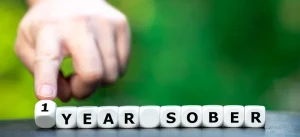
People who meditate may also feel more aware of their thoughts, less bothered by unpleasant experiences and better able to control their emotions. Recovery from addiction is a process; it’s not just about stopping abusing a substance. To stay clean and sober addicts addiction meditation kundalini have to examine their past, recognize their mistakes, look into their character, and lead a better life. Changing one’s life is not easy, often painful, even though the changes are for the better. For many, stress, anxiety, and depression accompany early recovery.
Begin your journey and take our most popular course for free!
Notice how many are outcomes of the pandemic, i.e., loss of a loved one, boredom, etc. We all have desires, but what takes desire that extra step into addiction? Addiction can be described as a disease of the brain that is defined by cycles of compulsive substance use. An addict’s behavior is characterized by limited control over their actions, intense cravings, and continued destructive conduct despite harmful consequences. Once you’ve grown more comfortable with meditating on your own, consider signing up for in-person or online meditation classes. This can help introduce you to new techniques and can provide a way to meet other people who share your interest.
meditations
In this post, we’ll provide a guided meditation script specifically designed for addiction recovery. Develop awareness of personal triggers and habitual reactions and learn ways to create a pause in this seemingly automatic process. Addictioncenter.com notes several other emotional and environmental triggers as well as warning signs for relapse.

Empowering Your Mental Health Journey
It involves sitting comfortably in a quiet setting, focusing your attention and allowing thoughts and distractions to pass without assessing them. As people gain experience in recovery they still face the stresses of everyday life. An ongoing meditation practice helps keep things in perspective. Before ending your meditation, express gratitude for the time and effort you’ve devoted to this practice.
Consulting and Training
The aim of this site is to help people use meditation in their everyday lives to make life better. C. Choose the best time for your meditation practice, when you’re least likely to be distracted or rushed. Restorationtherapy.com defines and outlines how to “urge surf” succinctly. Today, I will stay connected to my SAA community and share the solution with others.

A diverse and inclusive meditation book written entirely by and for veterans and active service members helps to fulfill the promise to Leave No One Behind. In a 2017 study, researchers found that practicing mindfulness in MBRP may reduce the link between craving and substance use and increase resilience for relapse. In 2014, a randomized control trial (RCT), the gold standard trial for evaluating the effectiveness of interventions, was conducted by Bowen and colleagues.
- During the study, women learned to identify and perceive internal signals related to their emotions.
- According to the National Center for Complementary and Integrative Health, meditation is a mind-body activity intended to promote calm and relaxation and help people cope with illnesses and improve well-being.
- We let go of the judgments, stereotypes, and prejudices that build walls and practice the tolerance, kindness, and empathy that build bridges.
- If you need to improve your focus and learn to identify body sensations, focused meditation might be suitable.
- Recovering addicts learn that they are not responsible for their thoughts, but they are responsible for how they react to those thoughts.
- Foster a nonjudgmental, compassionate approach toward ourselves and our experiences.
Take a moment to visualize your future self, free from the grips of addiction. Imagine the positive changes that come with sobriety – better health, improved relationships, and a greater sense of fulfillment. Use this vision to inspire and motivate you on your journey to recovery. Begin by taking a https://ecosoberhouse.com/ few deep breaths, inhaling deeply through your nose and exhaling slowly through your mouth. With each breath, feel your body relaxing and releasing tension. Now, bring your focus to the present moment, and if you find your mind wandering, gently guide it back to your breath as your mental anchor.
The Benefits of Meditation

Here, the training is designed to get parts of the brain that have been impaired by persistent drug or alcohol abuse back in shape. Daily meditations like this one are paramount to maintain a healthy recovery journey. Even still, support is vital for long-term addiction recovery. If you or someone you know is struggling with recovery, don’t hesitate to reach out.
- We’re talking to our kids or watching TV or sitting in a meeting, but our mind’s a million miles away.
- Notice how many are outcomes of the pandemic, i.e., loss of a loved one, boredom, etc.
- This can help introduce you to new techniques and can provide a way to meet other people who share your interest.
- Usually, we’re feeling stressed about something that happened in the past or feeling anxiety about what might happen in the future.
The brain is the only organ that’s shaped by experience and practice, much like a muscle gets bigger and stronger with exercise. Meditation is ultimately intended to ground you in the moment, and most people report feeling extremely calm afterward (and some even fall asleep during their meditative practices). It brings you back to your body and the present moment, and allows you to live right here, right now. Ready to take your recovery from alcohol and drug addiction to a whole new level?


Leave a Reply